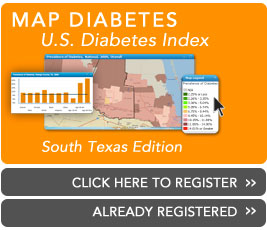The relationship between dietary advanced glycation end products and indicators of diabetes severity in Mexicans and non-Hispanic whites: a pilot study
Minority Diabetes Reports Tuesday, October 23rd, 2012Informahealthcare: 7/10/12
Diet is an important source of exogenous advanced glycation end products (AGEs). Dietary AGEs content depends on nutrient composition and on the way food is processed/cooked. The objective of our study was to compare AGEs intake of two different ethnic groups (Mexicans and non-Hispanic whites) with type 2 diabetes mellitus (DM) and to study the relationship between dietary AGEs and diabetes-related complications. Complications were self-reported by subjects (n = 65) and categorized according to a published DM disease severity index as low risk or moderate-high risk. Dietary records for 10 days were used to estimate dietary AGEs from a published food table. Non-Hispanic whites had higher intake of dietary AGEs (natural logarithm was used, LogAGEs) when compared with Mexicans, which was consistent with their higher intake of saturated fat. In addition, for each unit increase in the LogAGEs, a participant was 3.7 times more likely to have moderate-high risk for cardiovascular disease. Read More



























